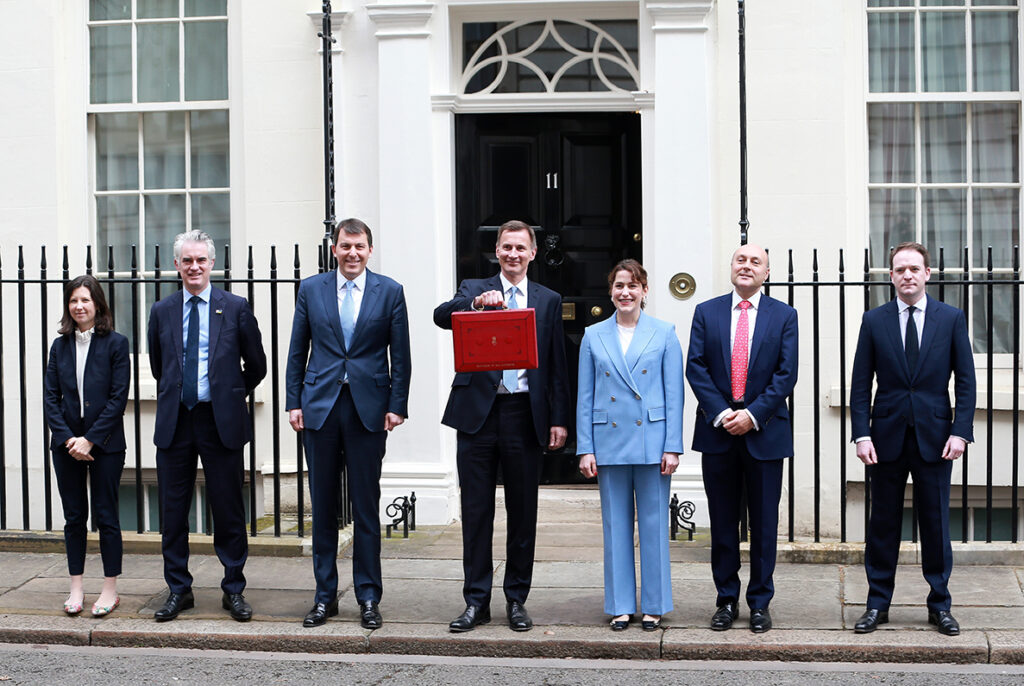Business owners and entrepreneurs across the UK have been hard hit over the last few years. The Chancellor framed the Spring 2023 budget as one focused on boosting the labour market and in turn the economy. Nothing new there then!
Borrowing has actually been £25 billion lower than projected in November. To the surprise of many experts Hunt reallocated two thirds of these savings. He revealed measures including pension tax reliefs along with assistance with childcare costs. The logic being that to help fill the UK’s 1 million job vacancies, we need skilled people to work further into old age and parents of young children to continue their careers.
So, did Jeremy Hunt manage to announce anything that will bring cheer to your business?
Budget outcomes – what will impact your business?
Motoring
- Fuel duty continues to be frozen. The 5p cut to petrol and diesel, due to end in April 2023, will remain in place for a further 12 months.
- £200m in 2023 to aid local council in England with their efforts to repair potholes
Energy
Energy costs and a lack of energy security on a national level have been high profile issues during the cost of living crisis. They played a fairly significant role in the Chancellor’s expenditure plans:
- Energy support for households has been extended for three months until the end of June.
- No changes were announced to the Energy Bills Discount Scheme for businesses, which will run from 1 April 2023 to 31 March 2024.
- Commitment to invest £20bn over next two decades on low-carbon energy projects, with a focus on carbon capture and storage.
- Nuclear energy to be classed as environmentally sustainable for investment purposes, with promise of more public funding.
Tax & Trade
- Corporation Tax to increase from 19% to 25% for businesses with taxable profits over £250,000. Businesses with profits between £50,000 and £250,000 to pay between 19% and 25%. No change for businesses making profits of less than £50,000.
- New machinery and technology investments can deducted by firms to lower taxable profits. The super-deduction has been replaced with full expensing.
- Tax breaks and other benefits for 12 new Investment Zones across the UK, funded by £80m each over the next five. The West Midlands, Greater Manchester, North East, South Yorkshire, West Yorkshire, East Midlands, Teesside, and Liverpool will benefit as well as at least one investment zone each in Scotland, Wales and Northern Ireland.
- Reductions in the Research & Development Tax credits introduced in November will be reversed partially. Enhanced credits for businesses will be available for companies that outlay 40% of turnover on R&D.
- Reduced paperwork for international traders, who will also be given longer to submit customs forms under streamlined rules
- Tax on tobacco increased by 2% over inflation and 6% above inflation for hand-rolled tobacco
Labour Market Initiatives
- Immigration rules to be relaxed for five roles within the construction sector, to ease labour shortages.
- 30 hours free childcare for eligible working parents in England expanded to cover one and two-year-olds by September 2025, to be phased in from April 2024 beginning at 15 hours.
- £600 incentive payments for new childminders along with an increase in England to the permitted ratio of childminder per child under their care.
- The £1.07 million pension Lifetime Allowance before paying extra tax has been abolished. The annual tax free pensions allowance will also increase 50% to £60,000.
- Over 50s provided with training courses and apprenticeships to entice more mature workers back into the jobs market.
- The creation of a voluntary Universal Credit employment scheme for disabled people and those with health conditions in England and Wales.
Landlords
The housing market’s stability is obviously linked directly to the country’s economic prosperity and the jobs market. However the housing market itself was largely untouched in the budget. Stamp duty remains unaltered. Landlords (for now) face no changes other than the reduced level of tax free gains before paying capital gains tax.
Hospitality
Increase in Draught Relief, to help pubs compete with supermarket alcohol sales by making their pints 11p cheaper. The relief will increase from 5% to 9.2% for beer and cider draught products and from 20% to 23% for wine, spirits and other fermented draught products. Although, alcohol taxes will rise in line with Retail Price Index (RPI) inflation of 10.1% on August 1st. In December, the alcohol duty freeze was frozen until this date. Miles Beale, Chief Executive of the Wine and Spirit Trade Association, described a 20% in wine duty as “staggering.”
Conclusion
Many were left underwhelmed by the budget. Perhaps because many measures were trailed in media in the lead up to their official unveiling in Parliament. But given the drama and disruption of Kwasi Kwarteng’s disastrous Autumn Statement, that remains fresh in the memory, most business owners will take boring for a good while yet. Though, they might have wanted to see and hear more, there is a realisation in most quarters that the Chancellor is operating with little financial head room for wide ranging, ambitious initiatives.
There was certainly good news in that fact that the Office for Budget Responsibility predicted that the UK will technically avoid a recession in 2023. However, the economy will still shrink by 0.2%. Though inflation is believed to have peaked. It is forecasted to fall to 2.9% by the end of year. So, combined with marginal uplifts also anticipated for GDP growth rates in future years, there may some sunshine to come further down the line.
Contact the team of commercial insurance experts at Plan Insurance Brokers today to discuss your business insurance needs.


